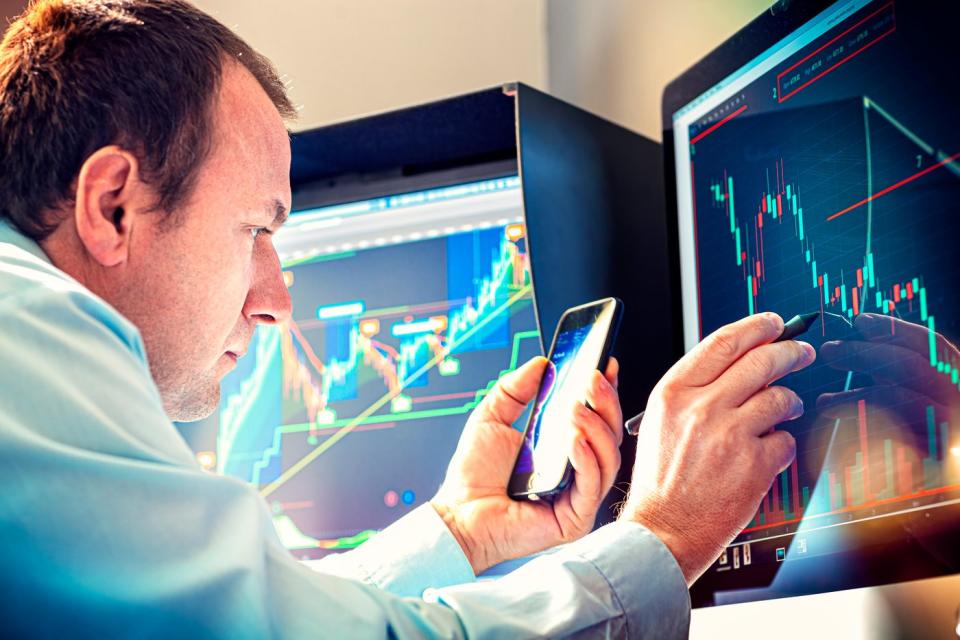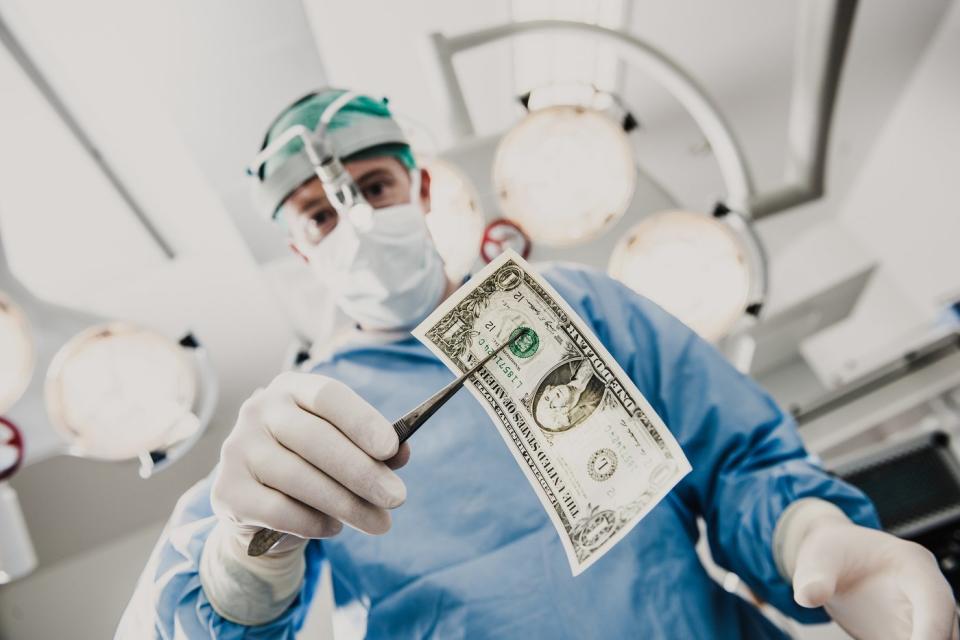
With few exceptions over the past thirty years, investors have always had the next big investment trend or innovation to look forward to. But since the advent of the Internet in the mid-1990s, other “next big thing” trends have consistently fallen short. The rise of artificial intelligence (AI) aims to change that.
In its simplest form, AI relies on software and systems to perform tasks that humans would normally oversee. What gives AI its undeniably lofty ceiling is the ability of these systems to learn and evolve without human intervention over time. Being able to infiltrate almost every sector and industry of the global economy could lead to trillions of dollars in additional consumption benefits and productivity gains by the end of the decade.


Although semiconductor stock Nvidia (NASDAQ: NVDA) While the country has been the most direct beneficiary of the artificial intelligence revolution, it hasn't necessarily been a favorite of Wall Street's smartest and most successful investors. Based on Form 13Fs In filings with the Securities and Exchange Commission about trades made during the fourth quarter, billionaire investors were sellers of Nvidia and opted to pile into two fast-growing AI stocks instead.
More than a half-dozen billionaires blamed Nvidia
Based on Nvidia's key growth metrics alone, investors would be hard-pressed to spot any flaws with the company. Revenue more than doubled in fiscal 2024 (ending January 28, 2024), with data center segment revenue skyrocketing 217%.
The initial demand for Nvidia's A100 and H100 graphics processing units (GPUs) has been otherworldly, which has resulted in exceptional price power for these chips. It is estimated that Nvidia's GPUs, which are preferred for running generative AI solutions and training large language models, command an approximately 90% share of high-compute data centers.
However, this didn't stop more than half a dozen billionaire asset managers from trimming their fund's respective holdings in Nvidia during the quarter ended December (total shares sold in brackets):
-
Israel Englander of Millennium Management (1,689,322 shares)
-
Jeff Yass of Susquehanna International (1,170,611 shares)
-
Steven Cohen of Point72 Asset Management (1,088,821 shares)
-
David Tepper of Appaloosa Management (235,000 shares)
-
Philippe Laffont of Coatue Management (218,839 shares)
-
Chase Coleman of Tiger Global Management (142,900 shares)
-
David Siegel and John Overdeck of Two Sigma Investments (30,663 shares)
After a near-parabolic rise in Nvidia's stock, these eight prominent billionaires may be able to count on history rhyming again. Every subsequent major investment trend or innovation since the mid-1990s has experienced a bubble burst in the early stages of adoption. This is to say that investors have a terrible habit of overestimating the introduction of new technology. AI is unlikely to break this streak, which would leave Nvidia's stock highly vulnerable to downside.
It's also hard to ignore the competitive pressures the company will face in the coming months. Apart from direct external competition from, among others Intel And Advanced micro devicesNvidia must deal with the fact that most “Magnificent Seven” companies are developing in-house GPUs for their data centers. That's a problem when 40% of Nvidia's net revenue comes from four members of the Magnificent Seven.
Regulators have also placed a glass ceiling over Nvidia. Despite their efforts to develop watered-down AI GPUs for China, US regulators have on two separate occasions blocked exports of Nvidia's high-performance GPUs to the world's second-largest economy by gross domestic product.
While billionaires were busy showing Nvidia the door, they pounced on two other fast-growing AI stocks.


Intuitive surgery
The first fast-growing artificial intelligence stock that billionaires couldn't stop buying when they sent Nvidia stock to the chopping block is a robot-assisted developer of surgical systems. Intuitive surgery (NASDAQ: ISRG). During the fourth quarter, half a dozen billionaires took the plunge, including (total shares purchased in brackets):
-
Philippe Laffont of Coatue Management (516,054 shares)
-
Israel Englander of Millennium Management (327,505 shares)
-
Steven Cohen of Point72 Asset Management (301,908 shares)
-
Ole Andreas Halvorsen of Viking Global Investors (290,501 shares)
-
Ken Griffin of Citadel Advisors (90,072 shares)
-
Ken Fisher of Fisher Asset Management (82,975 shares)
Intuitive Surgical is best known for its multi-generation da Vinci surgical systems, which assist surgeons with a variety of soft tissue procedures. The company's systems are designed to shorten recovery times in hospitals and minimize the chance of complications after the procedure. The integration of AI and machine learning should improve patient care and lead to more informed decision-making.
This is a company that undeniably benefits from competitive advantages as a pioneer. By the end of March, it had installed nearly 8,900 of its da Vinci systems worldwide, which is far more robot-assisted surgical systems than any of its competitors. Because these systems are pricey and it takes quite a bit of time to train surgeons to use them, the company tends to keep its customers for a while. long time.
Another reason why Intuitive Surgical has been such a phenomenal investment for so long is its razor blade utility model. Although da Vinci systems are pricey (often $0.5 million to $2.5 million), they are complicated and expensive to build. Where the company generates its juiciest margins is in selling instruments with each procedure, and maintaining these systems. These higher-margin categories have grown to represent a larger percentage of total sales over time, allowing earnings per share (EPS) to grow faster than sales.
I'd be remiss if I didn't also mention that the company's robotic-assisted surgical systems are just scratching the surface in terms of their potential. Although there is some evidence in soft tissue where the da Vinci system dominates, there is still a long way to go to gain market share in general soft tissue and thoracic procedures.
The second fast-growing artificial intelligence stock billionaires have piled into as they sell shares of semiconductor titan Nvidia is a social media expert Pinterest (NYSE: PINS). Four leading billionaire money managers were buyers of Pinterest stock in the fourth quarter, including (total shares purchased in brackets):
-
David Siegel and John Overdeck of Two Sigma Investments (6,823,828 shares)
-
Jeff Yass of Susquehanna International (317,658 shares)
-
Israel Englander of Millennium Management (98,282 shares)
For years, Pinterest has relied on AI and machine learning tools to improve search functionality on its site and ensure users see content that keeps them engaged. In theory, further investments in AI should help Pinterest direct users directly to merchants selling popular/in-demand items.
For the quarter ending March, Pinterest's standout number was monthly active user growth (MAU). While user growth isn't everything, it was the first time Pinterest exceeded the half-billion MAU mark. This suggests that the platform resonates with a growing percentage of the world's population.
Having 518 million MAUs also has its advantages on the advertising side. Sellers realize that Pinterest MAUs tend to be motivated buyers. More importantly, there aren't many social media platforms that can reach 518 million sets of eyeballs. As Pinterest's influence on social media grows, so does Pinterest's ability to gain stronger power over advertising prices.
Pinterest's simple business model also provides a competitive advantage over most social media platforms. While most social sites rely heavily on likes and data tracking tools to help advertisers target users with their message(s), Pinterest's entire operating model depends on the MAUs willingly and freely posting the things, and share services that interest them. Even if app developers continue to limit data tracking tools, this won't be a major hindrance to the Pinterest platform.
With Pinterest's growth accelerating once again, it's easy to see why select billionaires can't get enough of this stock.
Should You Invest $1,000 in Intuitive Surgery Now?
Consider the following before purchasing shares in Intuitive Surgical:
The Motley Fool stock advisor The analyst team has just identified what they think is the 10 best stocks for investors to buy now… and Intuitive Surgical wasn't one of them. The ten stocks that survived the cut could deliver monster returns in the coming years.
Think about when Nvidia created this list on April 15, 2005… if you had $1,000 invested at the time of our recommendation, you would have $550,688!*
Stock Advisor provides investors with an easy-to-follow blueprint for success, including portfolio building guidance, regular analyst updates, and two new stock picks per month. The Stock Advisor is on duty more than quadrupled the return of the S&P 500 since 2002*.
*Stock Advisor returns May 13, 2024
Sean Williams has positions in Intel, Intuitive Surgical and Pinterest. The Motley Fool holds positions in and recommends Advanced Micro Devices, Intuitive Surgical, Nvidia, and Pinterest. The Motley Fool recommends Intel and recommends the following options: long January 2025 $45 relying on Intel and short May 2024 $47 relying on Intel. The Motley Fool has one disclosure policy.
Forget Nvidia: Billionaires are selling it and piling into two fast-growing artificial intelligence (AI) stocks instead was originally published by The Motley Fool













